Five seabirds added to UK red list of most concern
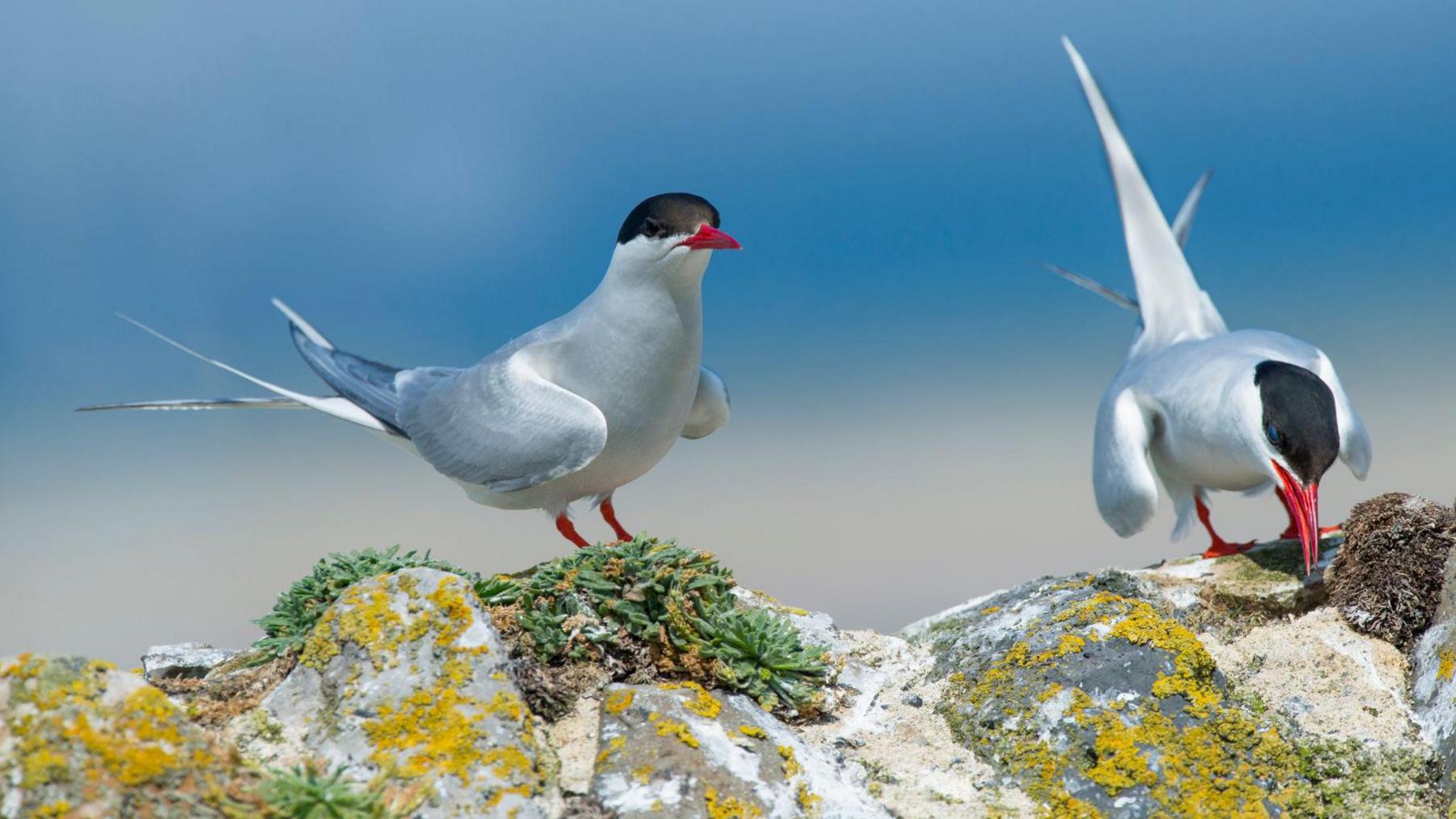
Arctic terns nest on British shores before flying to the Antarctic for winter
- Published
Five seabird species have been added to the UK red list of birds at most need of conservation, joining others such as the puffin.
The new entries include the Arctic tern, known for its incredible migration, the great skua, or pirate of the sea, and two types of gull.
The UK is known for its colonies of seabirds nesting in huge numbers on cliffs - but populations are plummeting amid a host of pressures, from climate change to a lack of food.
The Royal Society for the Protection of Birds (RSPB) is calling for urgent government action to address "this dire situation".
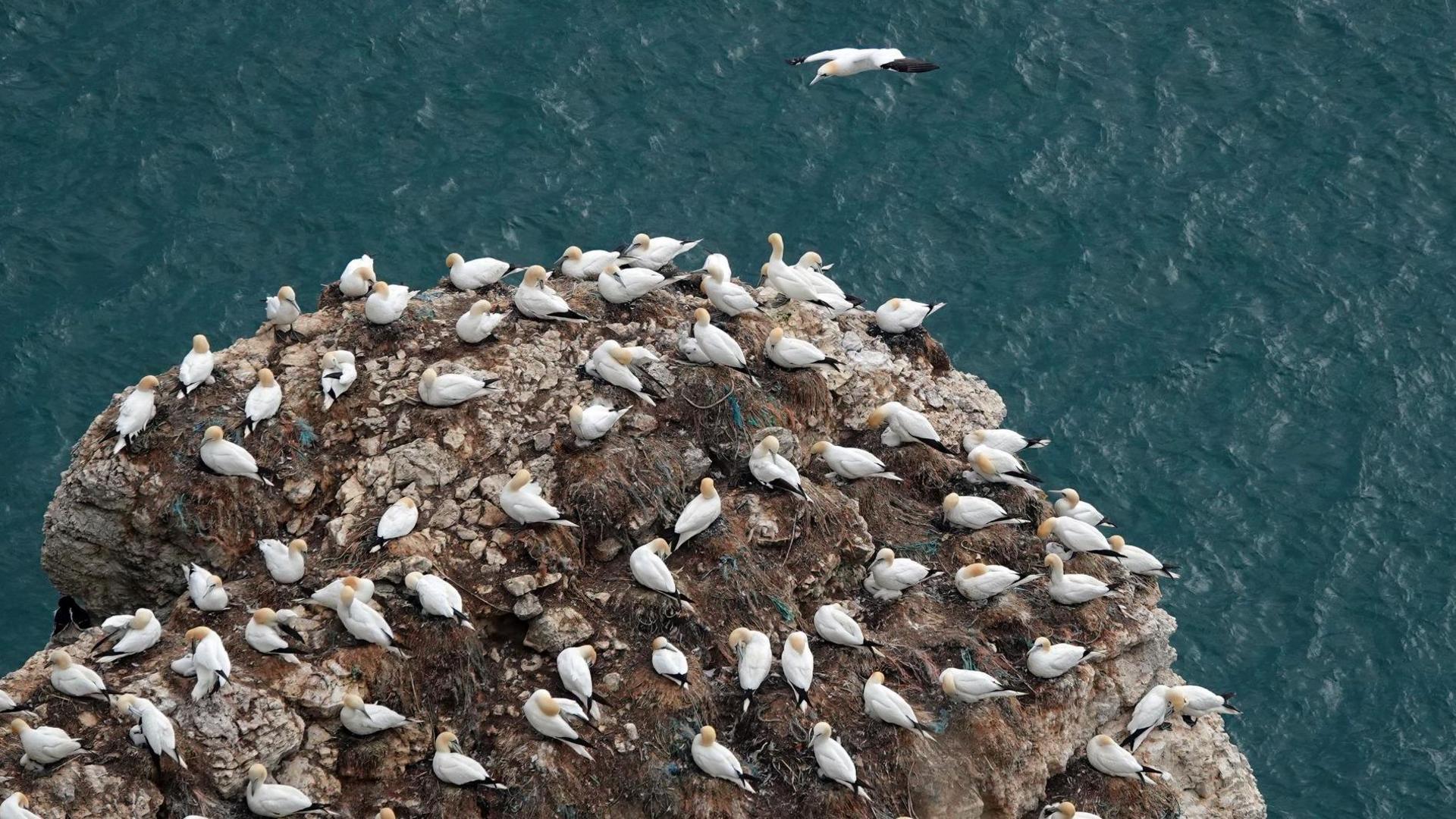
The UK is known for its populations of breeding seabirds, such as these northern gannets
"As an island nation, it is perhaps not surprising that we are globally important for seabird populations," RSPB global conservation director Katie-jo Luxton said.
"But what has really shocked us is the sheer number of our seabird species now on the red list."
Of the 26 seabirds that breed on the UK's coastlines and islands, 10 are now on the list.
The five new entries are:
the great black-backed gull - a very large gull with black wings and a powerful beak that nests around the coast, on clifftops, rooftops and islands
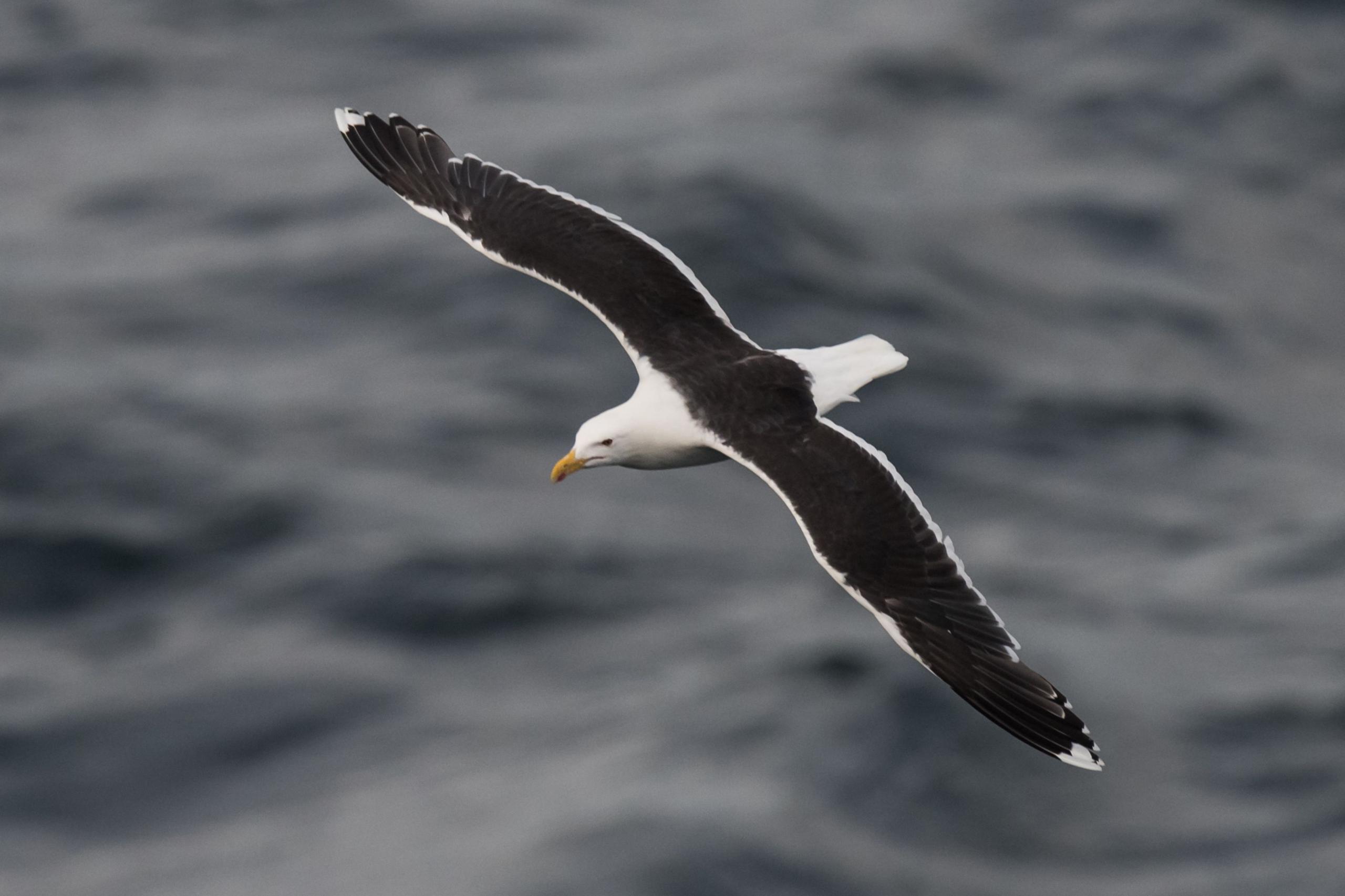
The great black-backed gull is the largest member of the gull family
the great skua - also known as the pirate of the seas, it will steal from other species and was particularly hard hit by avian flu
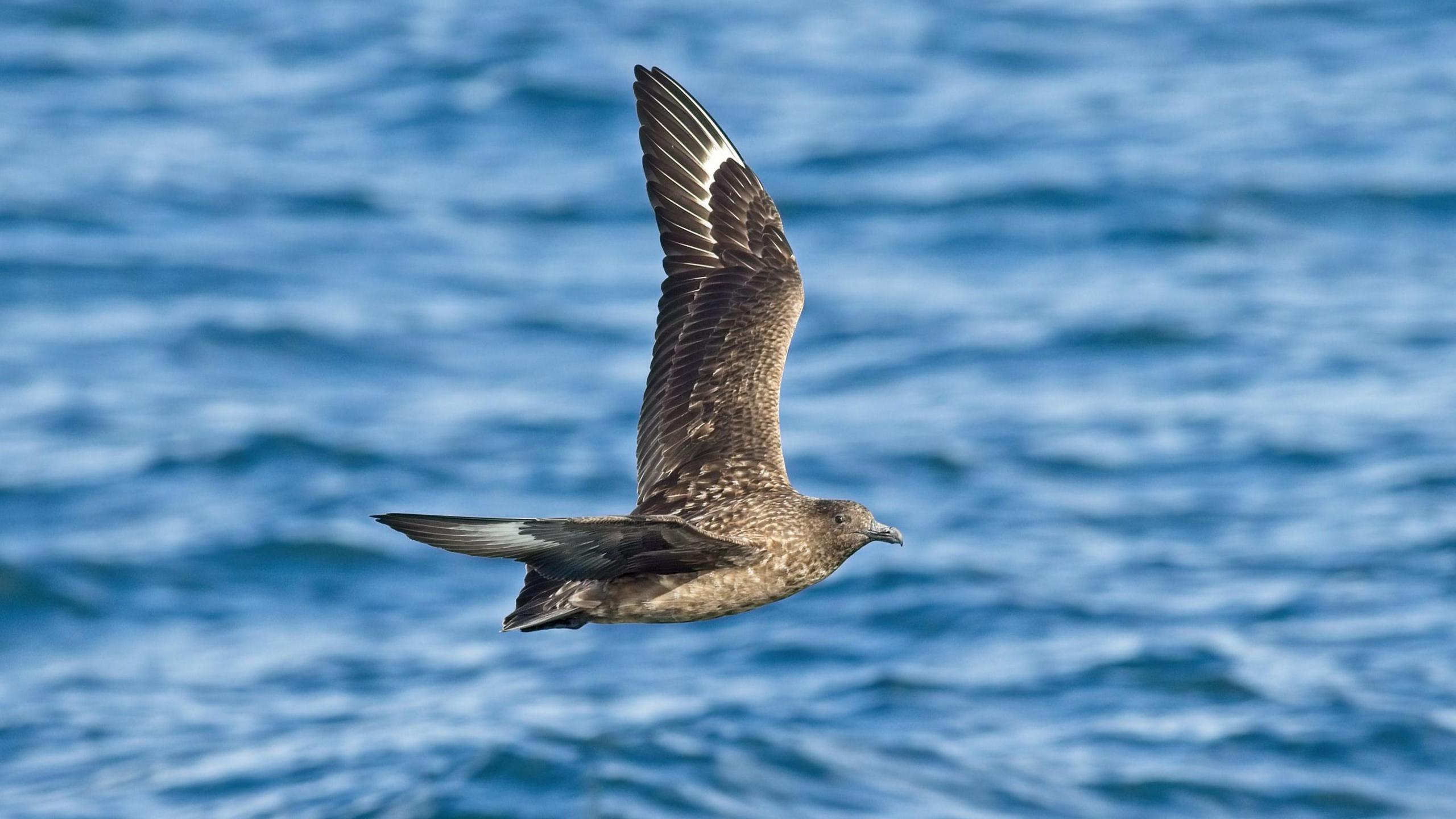
The great skua, sometimes known by the name bonxie in Britain, feeds on fish caught from the sea or taken from other birds
Leach’s storm petrel - an elusive seabird that nests on offshore islands, particularly on the north-west coast of Scotland
common gull - a medium-sized gull scarcer than its name suggests that nests around lakes in the north of England and Scotland
the Arctic tern - a coastal bird with white feathers and a black cap that breeds mainly in the northern UK and flies to the Antarctic in winter
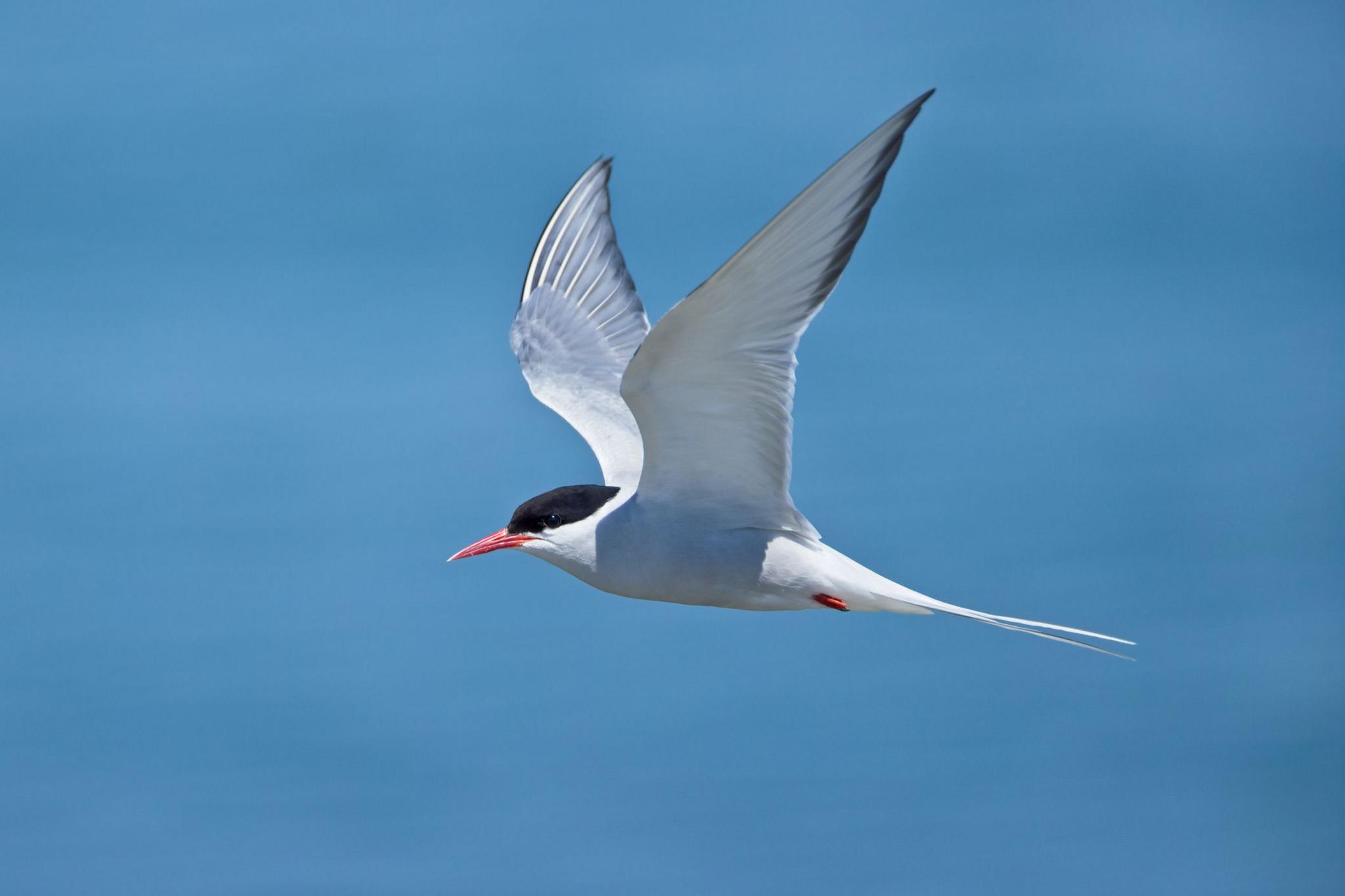
Arctic tern in flight
Five other seabirds were already on the list - the puffin, kittiwake, herring gull, roseate tern and arctic skua.
Seabirds are in trouble because of climate change, unsustainable fishing practices, offshore renewable-energy development and habitat loss.
According to last year’s Seabirds Count, the biggest UK census for 20 years, 62% of UK seabird species are in decline – kittiwakes and common gulls are down nearly 50% and puffin numbers have fallen by a quarter.
“We should be really concerned about this, because the UK is really important for breeding seabirds," British Trust for Ornithology surveys head Dawn Balmer said.
RSPB marine policy officer Jean Duggan called it a "wake-up call".
"It’s not just about safeguarding these species for ourselves at home, it's also safeguarding global populations and preventing future extinctions,” she said.
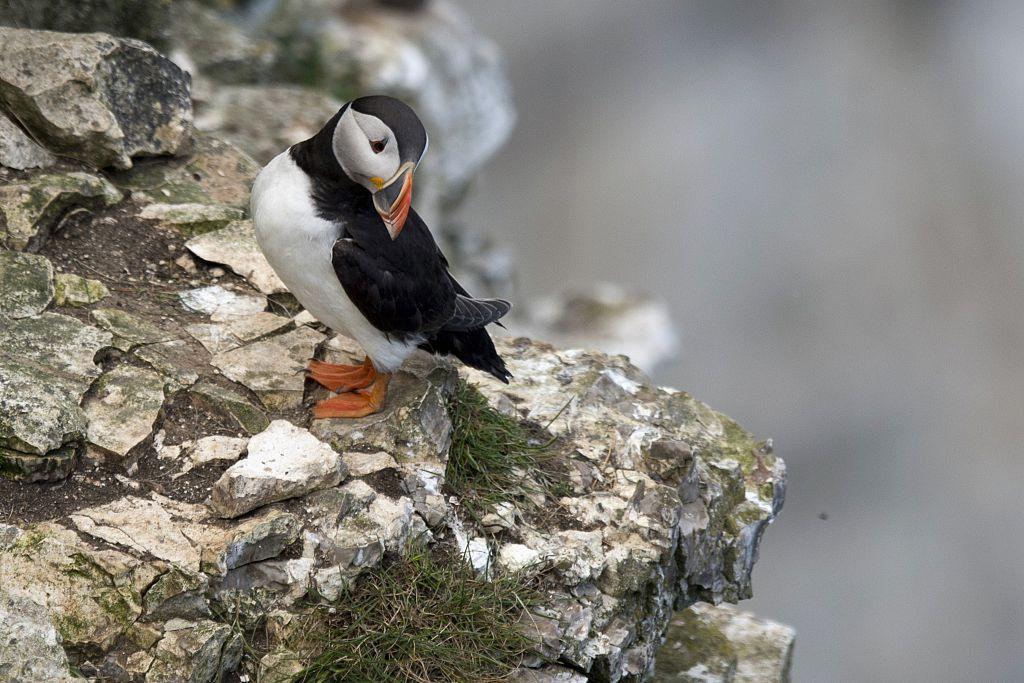
The UK is known for its seabirds, such as the puffin
There is good news for some of the seabirds that breed in the UK, with the shag moving from the red list to the amber and the black guillemot from the amber to the green.
But of the 245 birds regularly seen in the UK, including farmland, woodland and garden birds as well as seabirds, 73 (30%) are now on the red list.